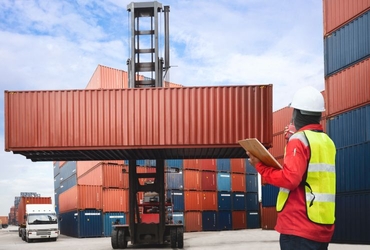
The 2M-less HMM



2M-less HMM
HMM’s long-awaited objective of joining the prestigious 2M alliance has come to a halt. It had been somewhat due to enter into an alliance with the world’s two largest lines in the ocean freight industry, Maersk and MSC, after being rejected by THE Alliance. Now, as it turns out, HMM has, instead, entered a slot sharing strategic cooperation with the duo. Talks of joining 2M as a member began in June 2016. But following South Korean counterpart Hanjin Shipping’s collapse in August which reverberated across the shipping industry, 2M backtracked.
In the first half of 2016, HMM’s creditors had requested for the carrier to enter into an alliance as part of its debt restructuring program. Even though this cooperative relationship falls just short of a full-fledged membership, HMM says it has met their creditors’ criteria. Some industry experts consider HMM fortunate to have entered into its restructuring program early. It meant that it was able to dodge the downfall that Hanjin Shipping wasn’t. Main creditor Korea Development Bank has yet to make a firm stance. **But for now, it says it sees the cooperation “in a positive light”. **
2M+H Strategic Cooperation
Under the agreement, there will be slot exchanges and purchases among the three parties. Surplus capacity will be shared or exchanged within the three. Such a slot purchasing agreement is fairly common among shipping carriers. Maersk, for example, also has similar cooperations with CMA CGM and Hapag Lloyd.
With the 2M+H cooperation, Maersk and MSC will also control certain HMM-operated vessels on the Asia – Europe and Asia – US East Coast routes. With this, Maersk and MSC will have the right to operate and market these HMM ships. HMM, meanwhile, will take on the position as a slot buyer. Industry experts say this part of the agreement proves beneficial for HMM; It’s no longer obligated to comply with charter obligations, especially if the market continues to tumble.
The South Korean company says the cooperation will provide it with access to 2M’s network. Such conditions play to its favor with rising demand and carriers pay for slots on one another’s vessels when it has filled up its own. **But with the industry still struggling with a prolonged downturn, it’s unclear when these players can actually reap this benefit. **
For Maersk, it fits into its plan to refocus, after its recent Hamburg Süd acquisition. The control of HMM’s routes will allow it to gain its influence and coverage in Asia.
“For Maersk Line the cooperation will provide new opportunities, not least in the Transpacific trade where 2M gets access to strong HMM products.” – Maersk
2M+H pending approvals
Along with Ocean Alliance and THE Alliance, this cooperation will begin in April 2017 once it gets its regulatory approvals. The trio will announce more details on its network routes and schedules in the coming months.
**The cooperation will last three years, with the possibility of an extension. **Despite the partial incorporation into 2M, HMM remains positive. It says full-fledged membership or an extension is possible after the initial period of three years – if it improves its finances. The three-year cooperation is much shorter compared to common alliance contracts, which typically run for five years. HMM says this is down to the restrictions of a long-term contract.
“A long-term contract may prevent HMM from growing into a global carrier under limited circumstances including restriction of new vessel orders.” – HMM
This isn’t the only cooperation into which HMM has entered since its failure to join any alliance. More recently, it announced an intra-Asia container alliance with compatriots Heung-A and Sinokor. The agreement is similar to that of 2M+H with vessel sharing and slot purchasing/exchanging deal and will begin operations in March.
“Heavy price”
According to Alphaliner, this is a ‘heavy price’ for the South Korean liner as it limits the carrier’s ability to negotiate with terminals and it will have to depend a lot on Maersk and MSC. The industry analyst describes HMM’s position in the agreement as a ‘relegated role’, as it relinquishes control of its ships.
“HMM’s ability to grow market share will be severely curtailed under the new agreement thrashed out last week.”
– Alphaliner
Alphaliner says that with this agreement, HMM’s ability to expand and grow in the future has hit a roadblock. It expects the deal to limit HMM’s available slots on certain routes for the length of the 3-year deal. With that, HMM pulled out of its original joint bid with MSC for Hanjin Shipping’s Long Beach terminal. This slot cap would have prevented HMM from being able to use the terminal to its maximum.
This is possibly the best HMM could have hoped for after missing out on Ocean Alliance and THE Alliance.
“Failure to reach an agreement with the 2M partners would have left HMM with limited options to continue service on the east-west trades.” – Alphaliner
Related Articles


